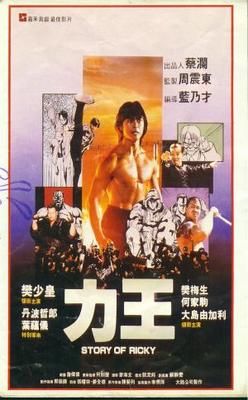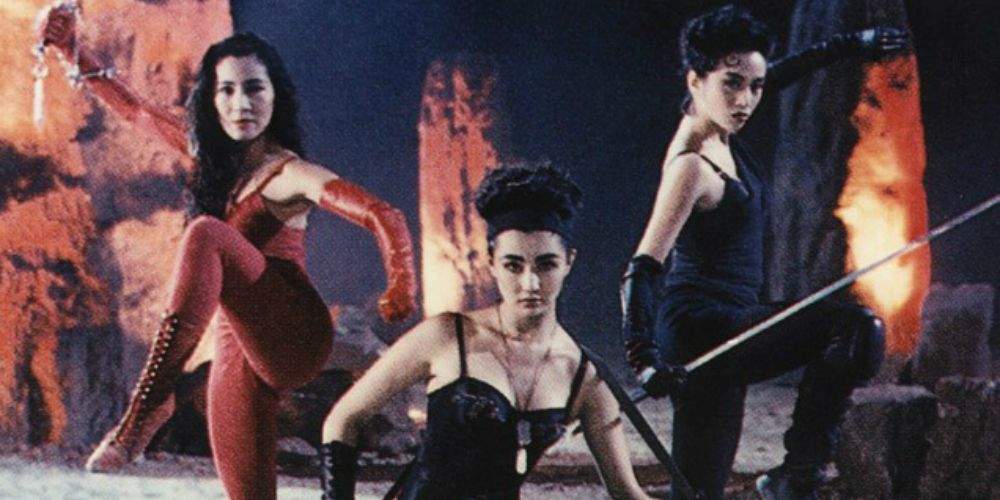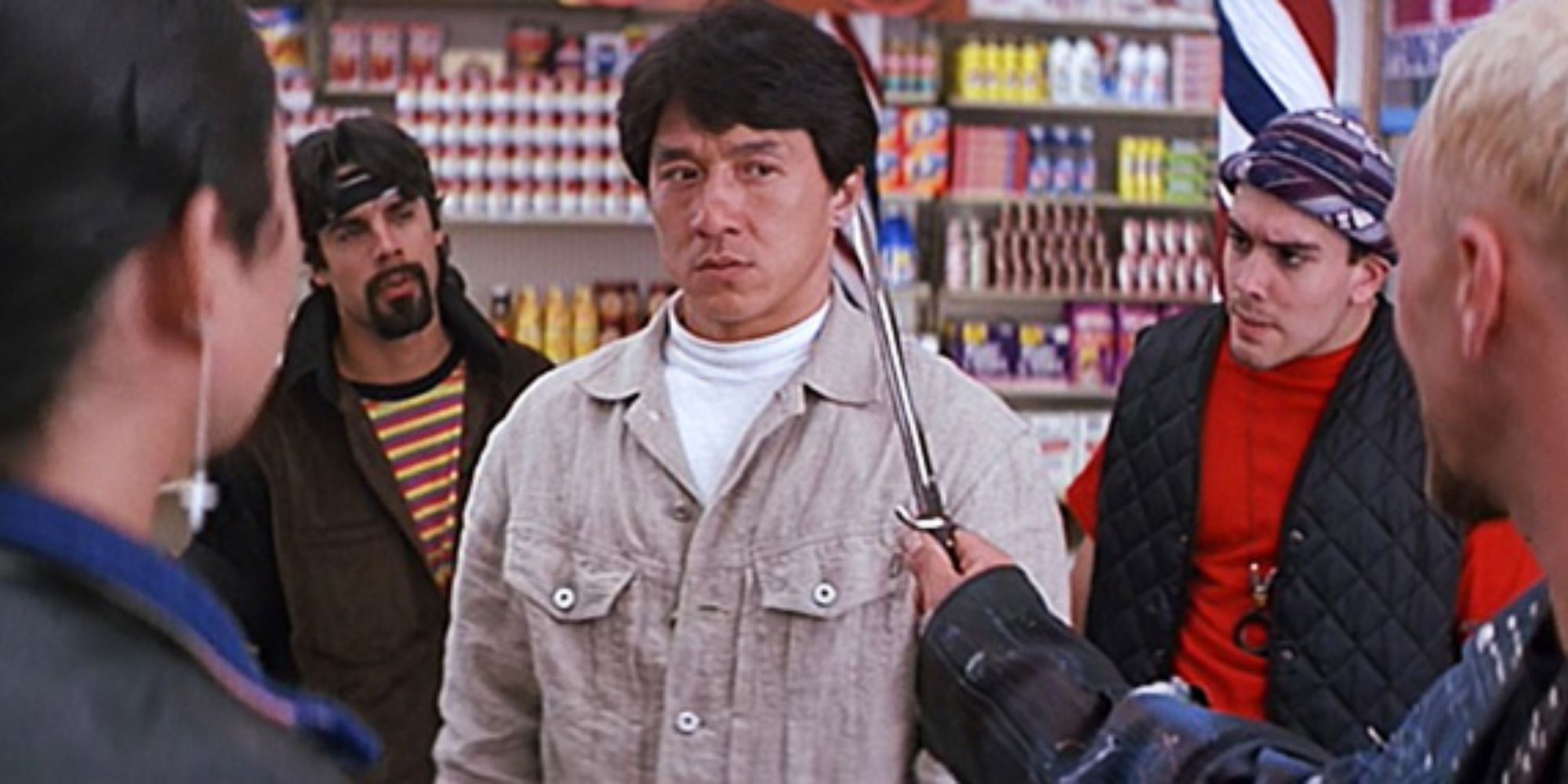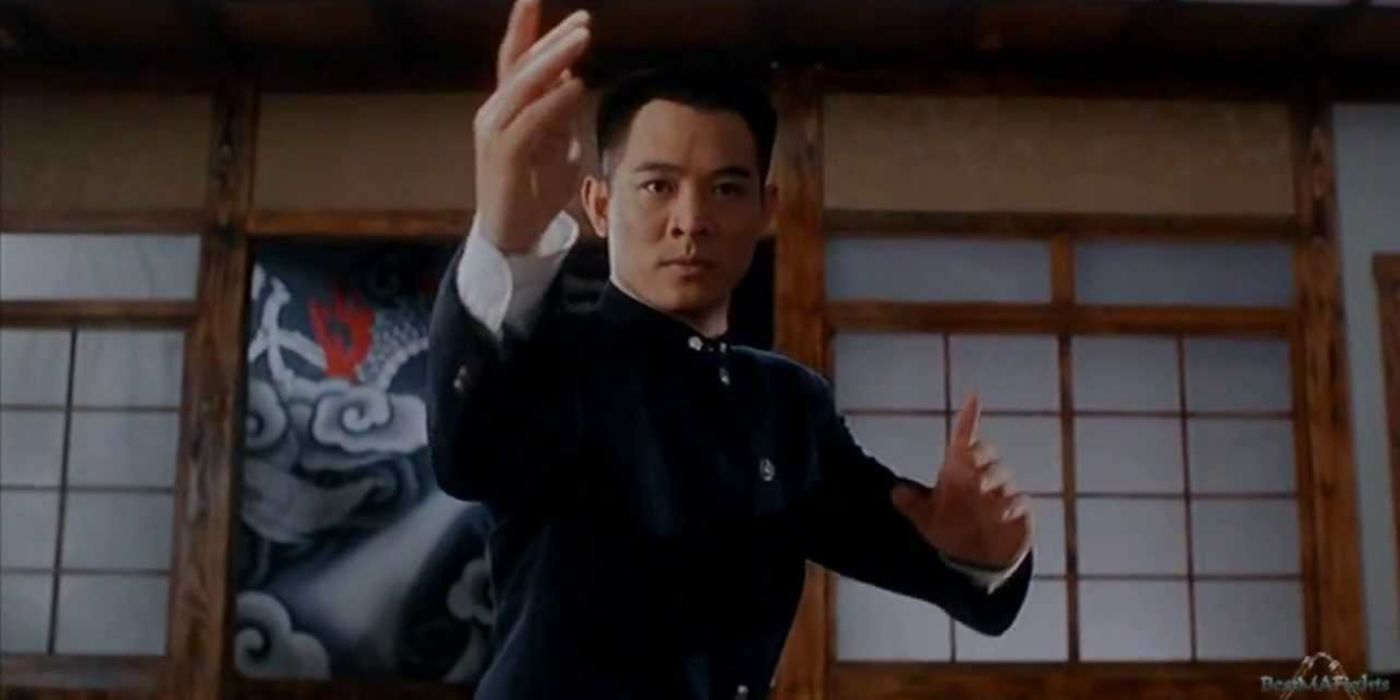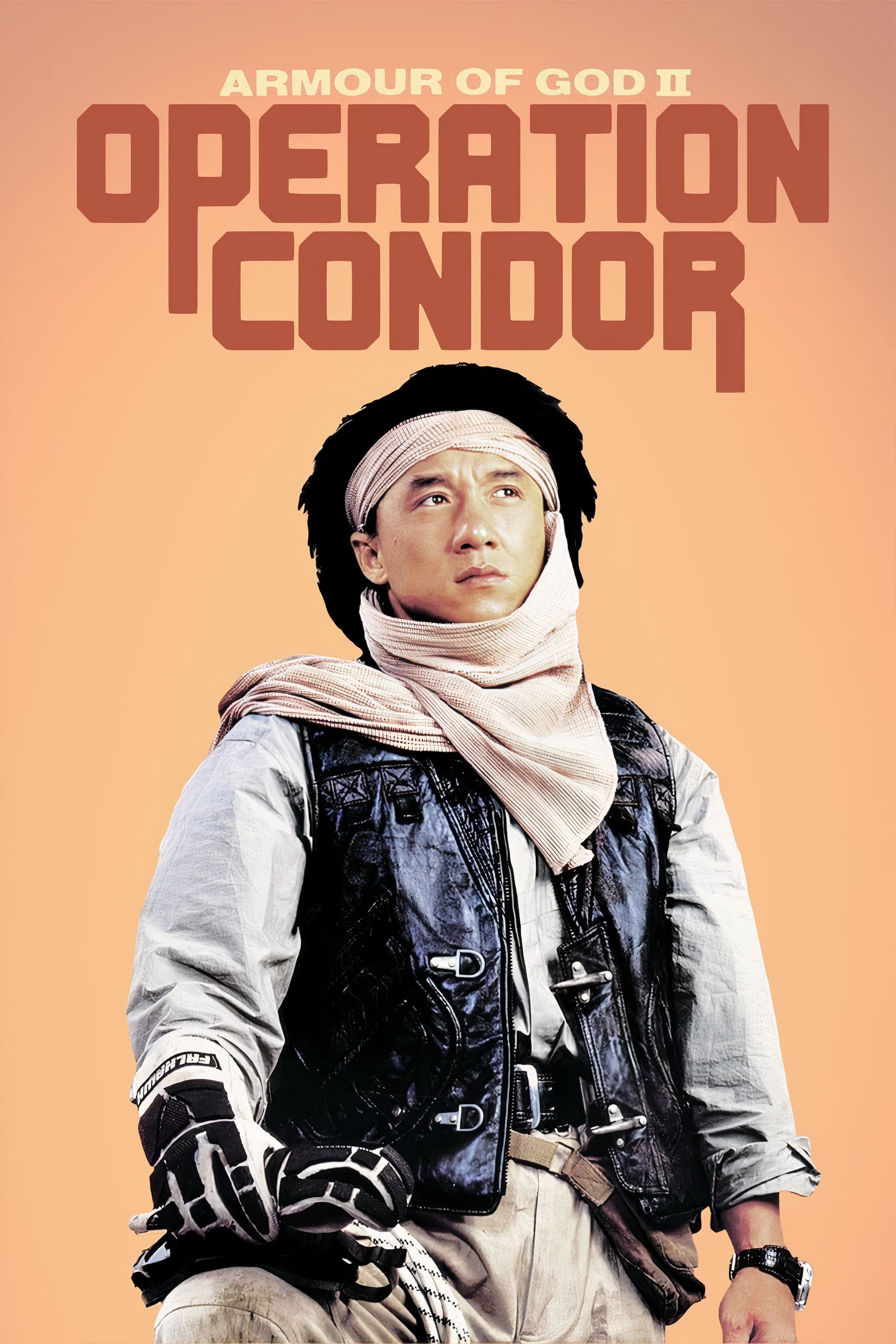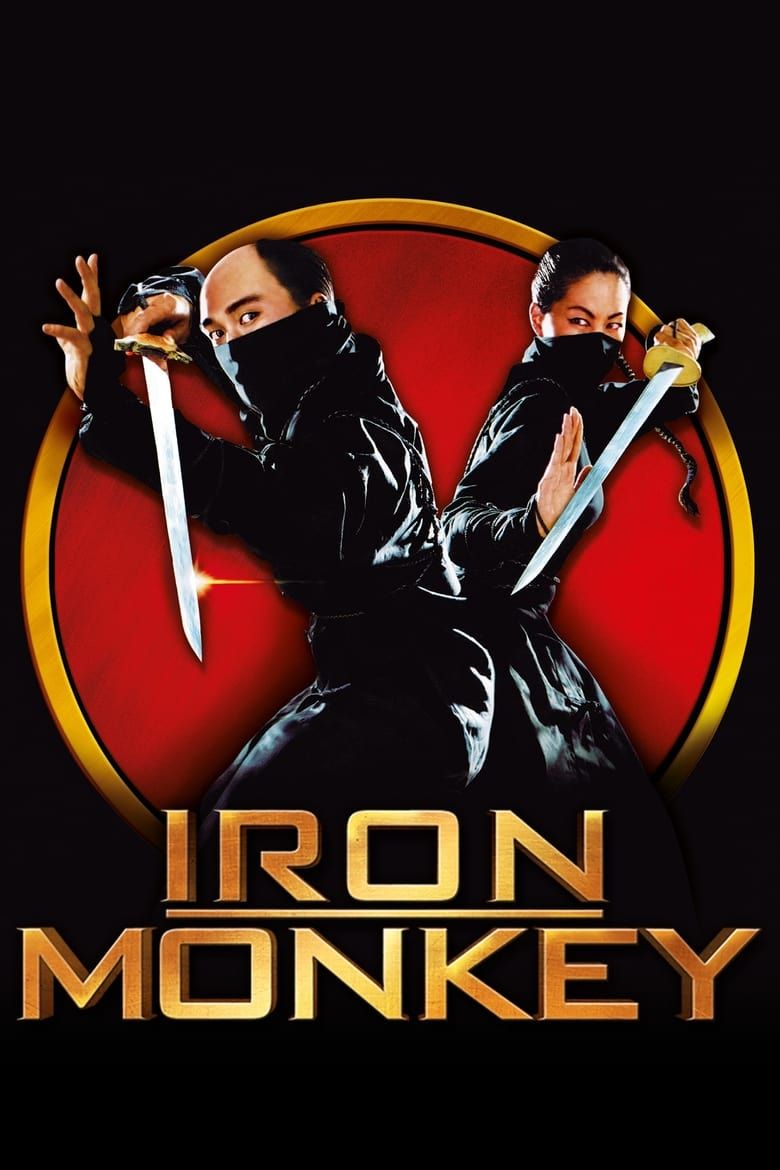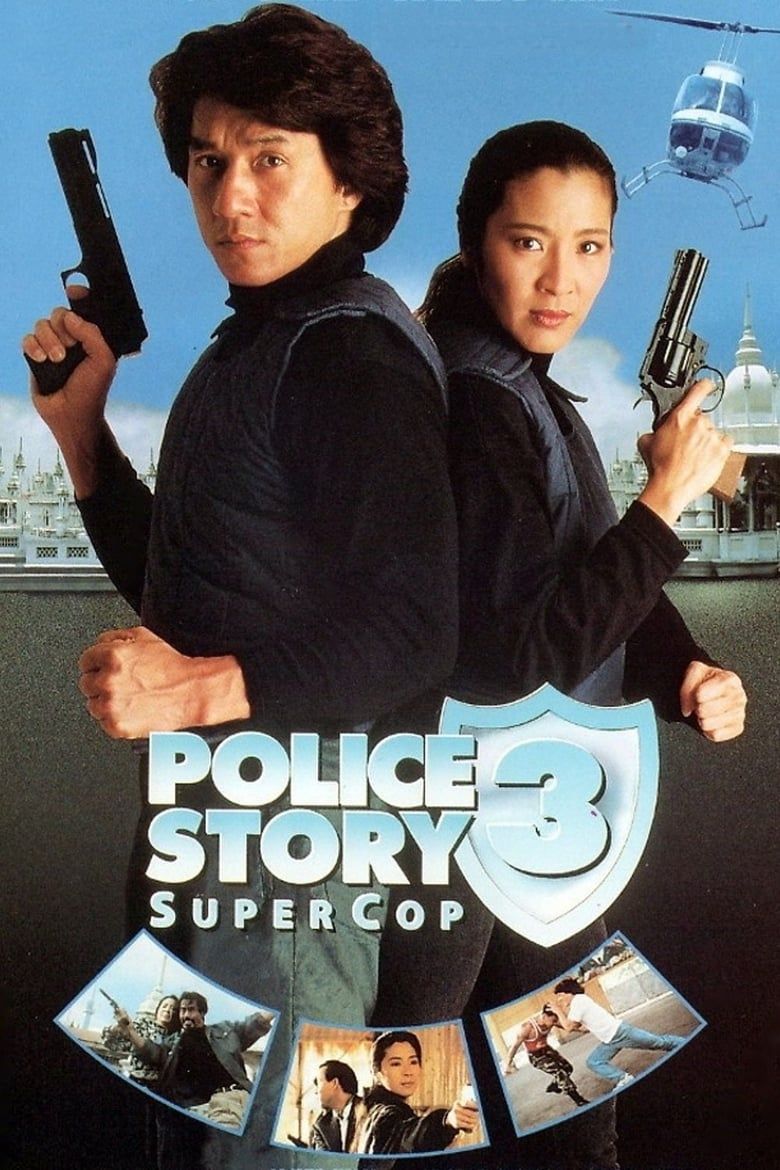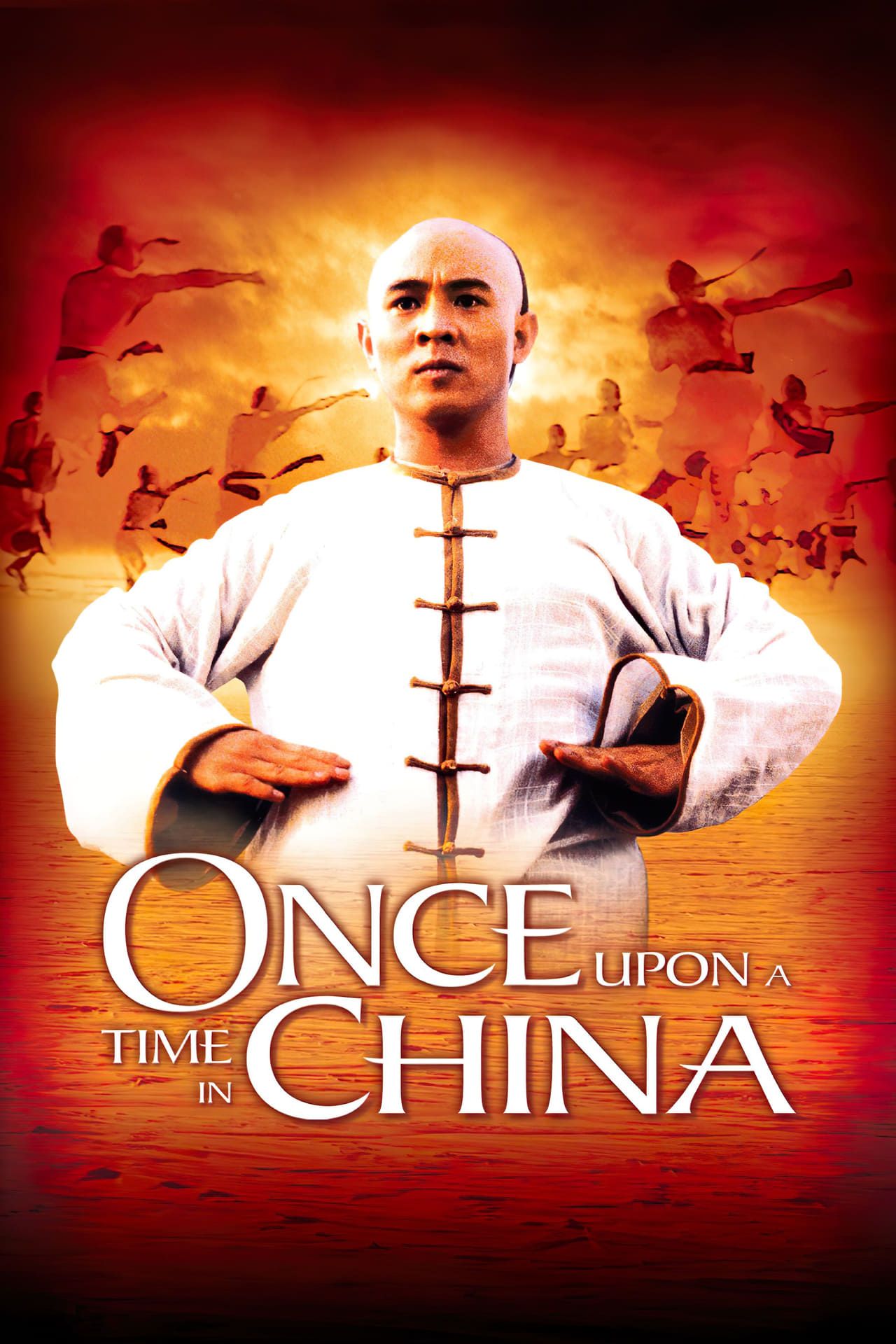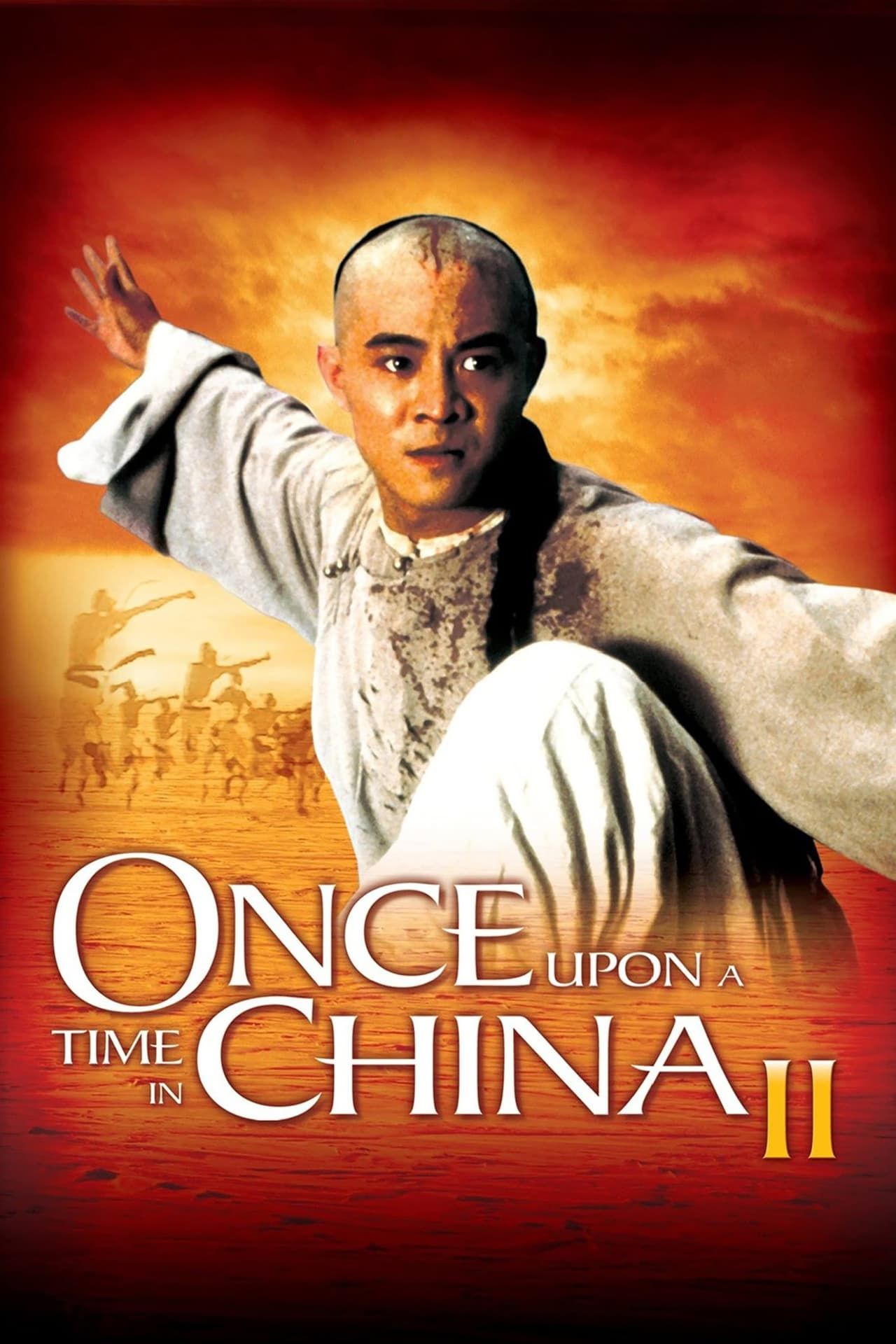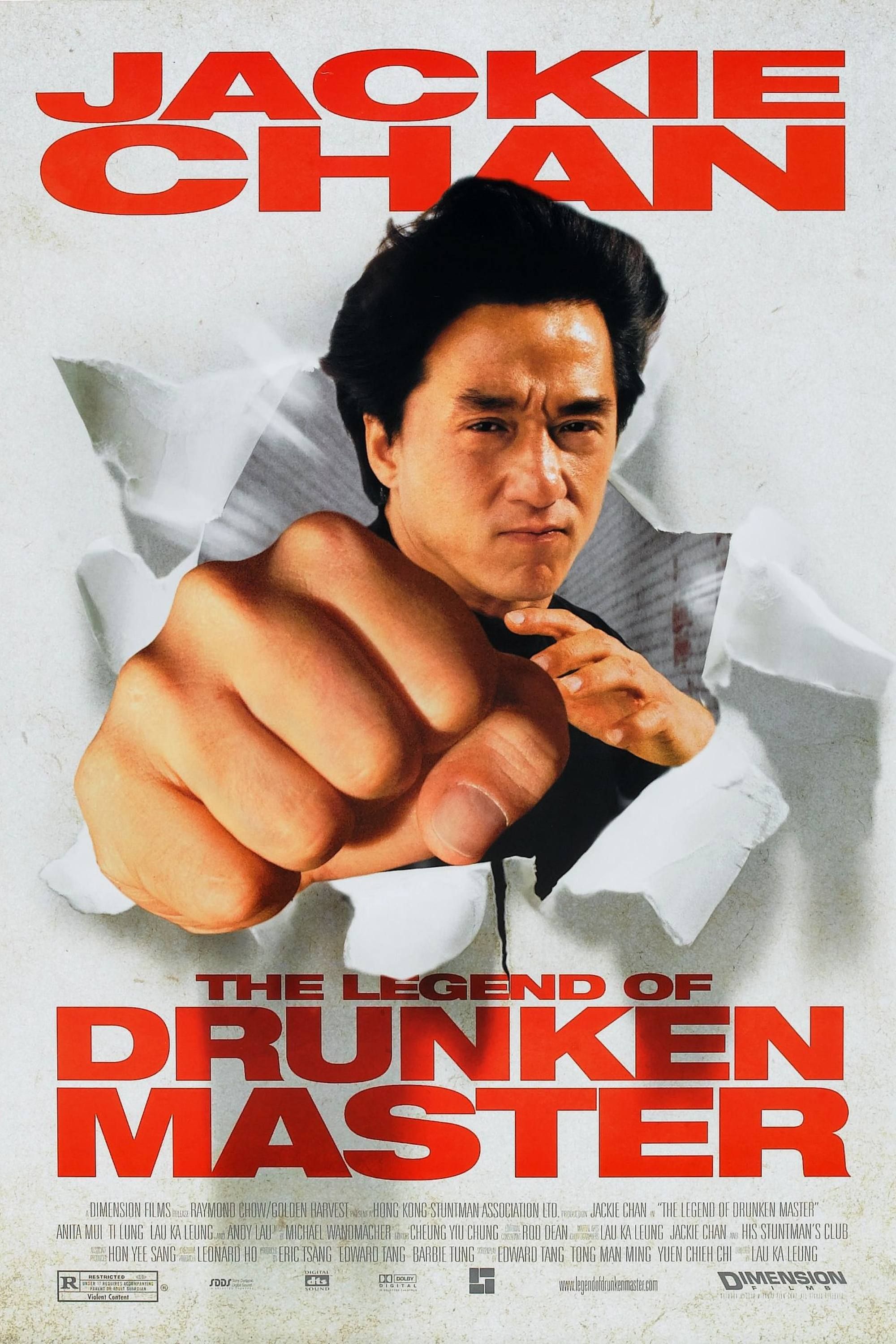
Multiple controversies related to the wuxia subgenre of martial arts cinema led to the emergence of the kung fu subgenre, which offered audiences a more realistic depiction of martial arts when compared to wuxia movies. The kung fu subgenre of martial arts cinema experienced its first explosion in popularity during the late 1940s and early 1950s through a series of films based on the life of Chinese folk hero Wong Fei-hung. Kwan Tak-Hing starred as Wong Fei-hung in approximately 80 movies between 1949 and the early 1980s.
Kung fu cinema entered its Golden Age during the early 1970s. Stars such as Jimmy Wang Yu, Lo Lieh, and Bruce Lee elevated the kung fu genre to unprecedented international acclaim and box office success. The 1990s saw kung fu actors like Jackie Chan, Donnie Yen, Jet Li, and Michelle Yeoh continue to make iconic works within the genre. Drunken Master II, Once Upon a Time in China, and Police Story 3: Supercop rank among the greatest kung fu movies of the 1990s.
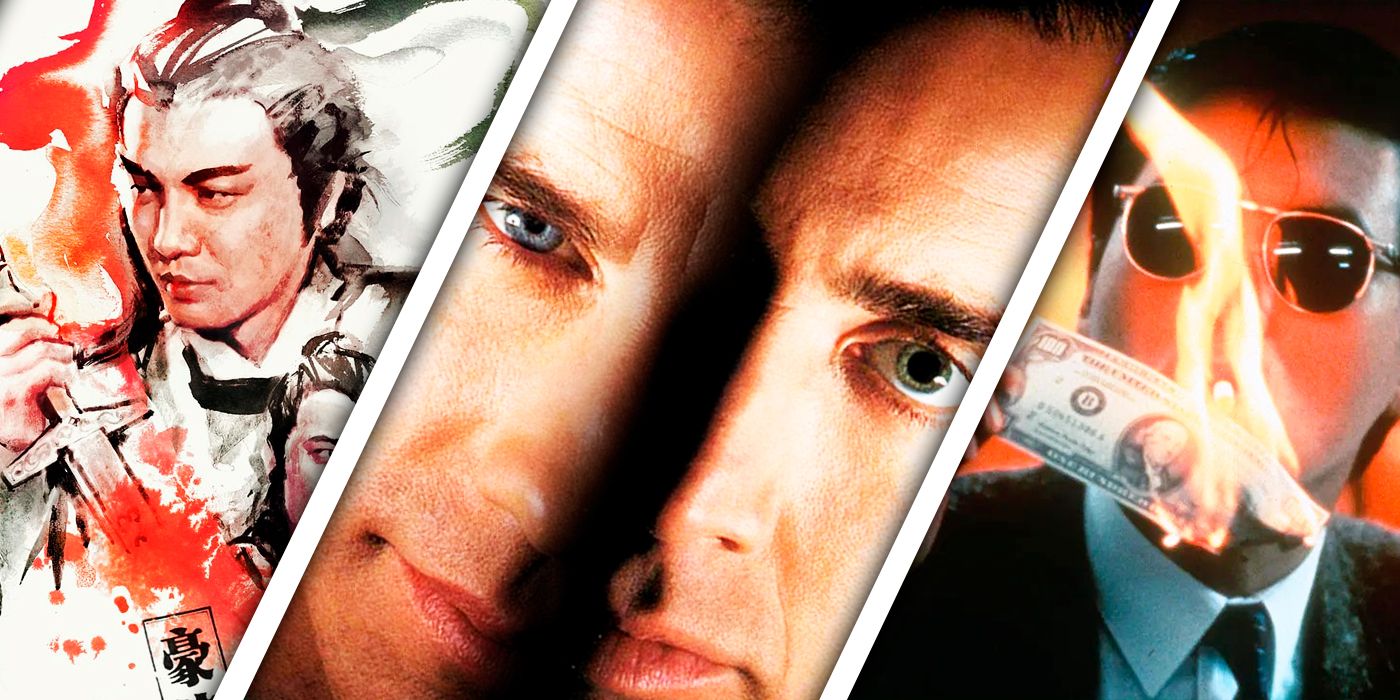
Related
15 Best John Woo Movies, Ranked
When it comes to action movies, John Woo and his films are synonymous with the genre. He has created some of the best movies the genre can offer.
10 Riki-Oh: The Story of Ricky Is Full of Camp and Gore (1991)
Based on the Japanese manga series Riki-Oh, Riki-Oh: The Story of Ricky is a kung fu comedy known for its high camp and excessive gore. Louis Fan Siu-wong stars as the titular Ricky, a young man with superhuman strength who receives a prison sentence for murdering a crime boss responsible for his girlfriend’s death. While in prison, Ricky uses his martial arts ability to destroy the corrupt officials.
Due to its graphic violence, Riki-Oh: The Story of Ricky earned a Category III rating in Hong Kong. This rating significantly inhibited Riki-Oh: The Story of Ricky’s box office performance. However, the film quickly developed a cult following through its home video release. Today, many celebrate Riki-Oh: The Story of Ricky for its over-the-top style. The Criterion Channel wrote of the film, “Channeling the kinetic, hyper-stylized spirit of the manga source material, writer-director Lam Nai-Choi delivers a blast of pure cinema so outrageously over the top it’s nearly avant-garde.”
9 The Heroic Trio Is a Hong Kong Kung Fu Superhero Movie (1993)
One of the best early works by Hong Kong auteur Johnnie To, The Heroic Trio is a genre-bending movie that combines elements from kung fu movies, superhero films, fantasy cinema, and mo lei tau comedies. Specific to Hong Kong cinema, mo lei tau films are a type of comedy that mixes absurdism with slapstick humor. Michelle Yeoh stars as Ching, a woman with invisibility powers who kidnaps babies for her powerful master. Anita Mui and Maggie Cheung co-star as the crime-fighting women who try to bring the kidnapper to justice.
At the Hong Kong Film Awards, The Heroic Trio won Best Original Film Song. The movie also earned nominations for Best Action Choreography, Best Original Film Score, and Best Original Film Song. Seven months after The Heroic Trio’s premiere, To, Yeoh, Mui, and Cheung all returned for a sequel, titled Executioners. Thanks in part to The Heroic Trio’s three leading ladies, dazzling kung fu mayhem, and audacious comic book-style lunacy, the film has developed a dedicated cult following.
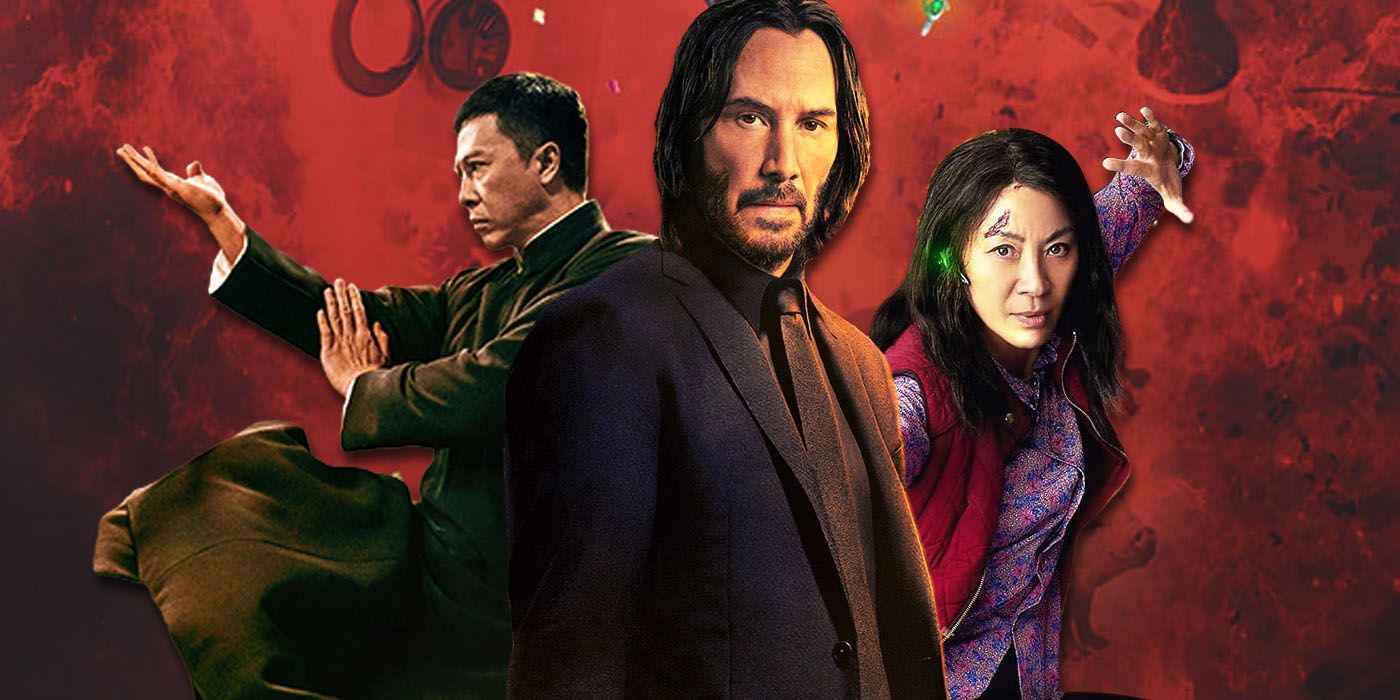
Related
10 Best Martial Arts Movies Since 2015, Ranked
Martial Arts films are one of the most beloved styles of cinema and since 2015 the genre has exploded with incredible movies like IP Man and John Wick
8 Jackie Chan Travels to New York City for Rumble in the Bronx (1995)
The second of eight collaborations between director Stanley Tong and kung fu star Jackie Chan, Rumble in the Bronx sees Chan travel to New York City. Ironically, most of the film was shot in Vancouver, not New York City. In Rumble in the Bronx, Chan stars as Keung, a young man from Hong Kong who visits New York City for his Uncle’s wedding. While helping out at his Uncle’s market in the Bronx, Keong becomes involved in a conflict with a local gang.
A massive box office hit, Rumble in the Bronx went on to become the highest-grossing Hong Kong movie of all time. Rumble in the Bronx was immensely successful overseas as well and played a major role in Chan breaking through in the United States market. At the Hong Kong Film Awards, Rumble in the Bronx received seven nominations, winning for Best Action Choreography. The San Francisco Examiner’s Barry Walters wrote of the film, “Rumble in the Bronx has the explosive escapades that Stallone/Schwarzenegger followers crave – hair-raising free falls, hovercrafts out of control, crazed turf wars, collapsing buildings, gun-happy gangsters and other boy-film staples – plus the kind of oddball comedy and independent spirit usually found only outside the current Hollywood empire. Chan is a true artist of a genre that ordinarily does all it can to avoid art.”
7 Jet Li Channels Bruce Lee in Fist of Legend (1994)
In 1972, Bruce Lee starred in one of his most seminal works, Fist of Fury. The film was an international success and became the highest-grossing Hong Kong movie, then. Twenty-two years later, Gordan Chan directed a remake titled Fist of Legend, which starred Jet Li and had action choreography by Yuen Woo-ping. Fist of Legend features Li as Chen Zhen, a Chinese engineering student who returns to Shanghai to avenge his master’s death at the hands of the Japanese.
Even though it was a risky move to remake a classic, Fist of Legend became one of Li’s most influential movies. At the Hong Kong Film Awards, Fist of Legend garnered a nomination for Best Action Choreography. Inspired by Fist of Legend, the Wachowskis hired Yuen as the action choreographer for The Matrix. Fist of Legend contains many memorable fight scenes, including the dojo fight and Zhen facing off against General Fujita.
6 Armour of God II: Operation Condor Is an Excellent Follow-Up to Armour of God (1991)
Armour of God was a landmark 1980s Hong Kong action movie that Jackie Chan co-wrote, directed, and starred in. The film was the highest-grossing Hong Kong movie of all time. Time Out included Armour of God on their list of the best action movies ever made. Armour of God II: Operation Condor is an excellent sequel to one of Chan’s most popular works. In the movie, Chan reprises his role as “Asian Hawk,” this time helping the UN find Nazi gold hidden in the Sahara Desert.
Armour of God II: Operation Condor was a commercial success, finishing in 1991 as Hong Kong’s second highest-grossing domestic release. At the Hong Kong Film Awards, Armour of God II: Operation Condor earned a nomination for Best Action Choreography. Roger Ebert praised Chan’s performance, writing “Even the little moments are a kind of perfection. Chan jumps against a wall, pushes off to the parallel wall, and leaps over a gate in the wall. The stunt combines an acrobat’s skill with a dancer’s grace.”
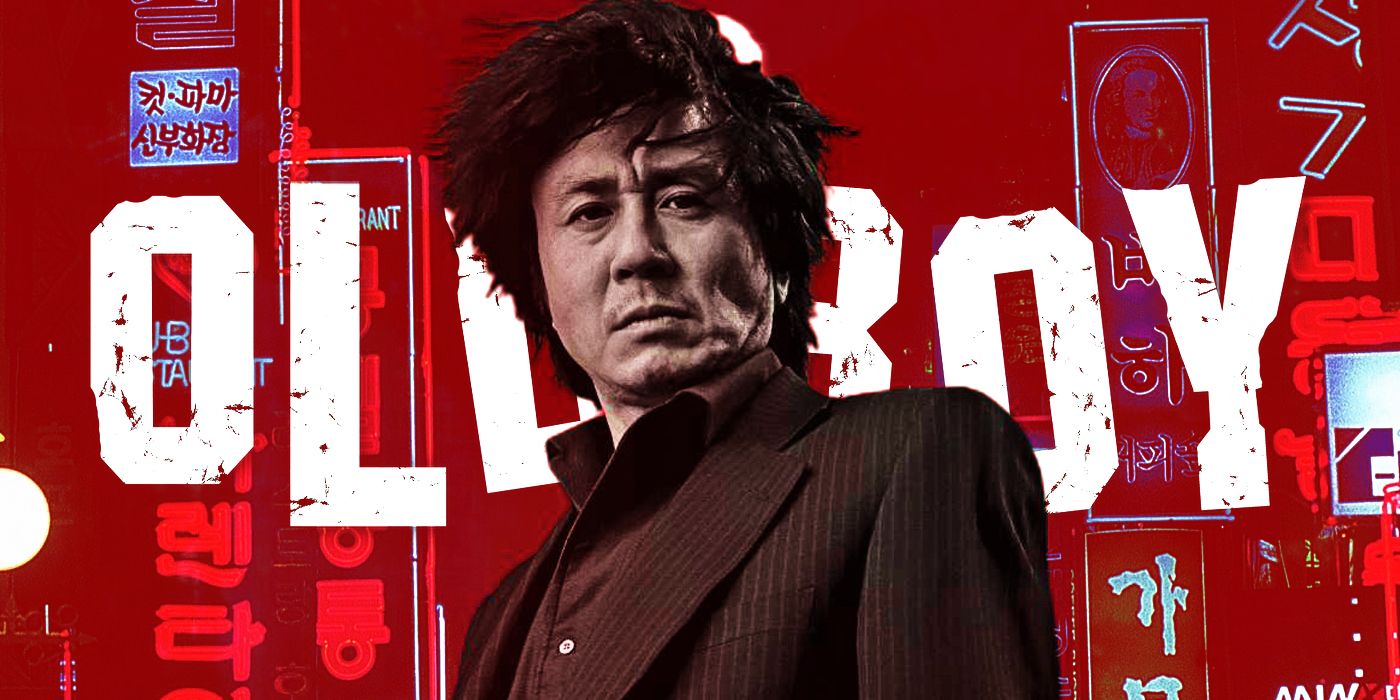
Related
10 Best Korean Action Movies, Ranked
Korea has made huge strides in cinema and has created some outstanding action movies like Oldboy and The Man from Nowhere.
5 Iron Monkey Features Wirework at its Finest (1993)
Directed by Yuen Woo-ping, Iron Monkey is a masterclass in how to perfectly execute wirework action choreography. Iron Monkey tells a fictionalized story about Wong Kei-ying’s fight against a masked martial artist known as the “Iron Monkey.” Wong Kei-ying was the father of Chinese folk hero Wong Fei-hung. Donnie Yen stars as Wong Kei-ying, while Angie Tsang plays a young Wong Fei-hung.
According to producer Tsui Hark, a delay in Iron Monkey’s release likely hurt the film’s box office performance in Hong Kong. However, Iron Monkey enjoyed unexpected success at the United States box office when it premiered in 2001. Quentin Tarantino helped get Iron Monkey a United States theatrical release through Miramax Films. At the Hong Kong Film Awards, Iron Monkey received a nomination for Best Action Choreography. Empire named Iron Monkey the 99th greatest film of world cinema. The publication wrote that Iron Monkey’s “set pieces such as the knife fight, and the final balancing-on-top-of-giant-sticks rooftop battle are stone cold classics of the genre.”
4 Police Story 3: Supercop Is Another Fantastic Entry in the Police Story Franchise (1992)
Stanley Tong’s Police Story 3: Supercop was the third fantastic entry in a row for the Police Story franchise. Police Story 3: Supercop returned Jackie Chan, Maggie Cheung, and Bill Tung to the franchise, while also introducing Michelle Yeoh to an already stacked cast. In the film, Inspector Kevin Chan Ka-kui teams up with Interpol Superintendent Jessica Yang Chien-hua to stop a Chinese drug czar.
Police Story 3: Supercop was a box office hit, finishing in 1992 as the tenth highest-grossing domestic release in Hong Kong. At the Golden Horse Film Festival, Police Story 3: Supercop earned four nominations, winning for Best Leading Actor and Best Film Editing. Police Story 3: Supercop also received two Hong Kong Film Award nominations for Best Actor and Best Action Choreography. Retrospectively, Police Story 3: Supercop continues to garner acclaim as one of the best action movies of all time. Quentin Tarantino proclaimed Police Story 3: Supercop has the best stunts of any movie ever filmed. Time Out ranked Police Story 3: Supercop the 77th greatest action movie in film history. The publication wrote of the movie, “Buster Keaton and Harold Lloyd both tempted fate with insane stunts, but Jackie Chan eclipsed them both—this film is the peak example of an entertainer defying safety for the public’s enjoyment.”
3 Once Upon a Time in China Is the Inaugural Movie in a Landmark Kung Fu Franchise (1991)
The Once Upon a Time in China franchise is a landmark kung fu media entity that consists of six feature films and one television series. Produced, co-written, and directed by Tsui Hark, Once Upon a Time in China kicked off the franchise with a bang. Jet Li stars as Wong Fei-hung, who must fight against foreign forces attempting to plunder China. Wong also assumes the role of protector for Aunt Yee Siu-kwan, who recently returned from a trip to America.
Once Upon a Time in China was a financial success in Hong Kong, finishing as the country’s eighth highest-grossing domestic release in 1991. At the Hong Kong Film Awards, Once Upon a Time in China earned eight nominations, winning for Best Director, Best Action Choreography, Best Film Editing, and Best Original Film Score. Once Upon a Time in China also won the Golden Horse Film Festival Award for Best Original Film Score. Time Out wrote of Once Upon a Time in China, “Underlying it all is a Peckinpah-esque lament for dying traditions and values, but its real strengths are its choreography, its flashes of wit, and its all-round exuberance.”
2 Once Upon a Time in China II Is a Rare Sequel That Is Superior to the Original Film (1992)
It is a rare occurrence in cinema when a sequel surpasses its original film in quality. Tsui Hark’s Once Upon a Time in China II is one of those scarce movies. In the film, Jet Li reprises his role as Wong Fei-hung, this time facing off against the White Lotus Society, a fanatical cult seeking to drive Europeans out of China through violent means. Wong also must defend Dr. Sun Yat-sen from the military.
An even bigger success than Once Upon a Time in China, Once Upon a Time in China II slightly out-grossed the original film at the domestic box office. At the Hong Kong Film Awards, Once Upon a Time in China II received nine nominations, winning for Best Action Choreography. Once Upon a Time in China II also earned four Golden Horse Film Festival Award nominations, winning for Best Original Film Song. Retrospectively, Time Out voted Once Upon a Time in China II as the 18th greatest action movie of all time. Today Once Upon a Time in China II is best remembered for the epic fight sequence between Li and Donnie Yen.
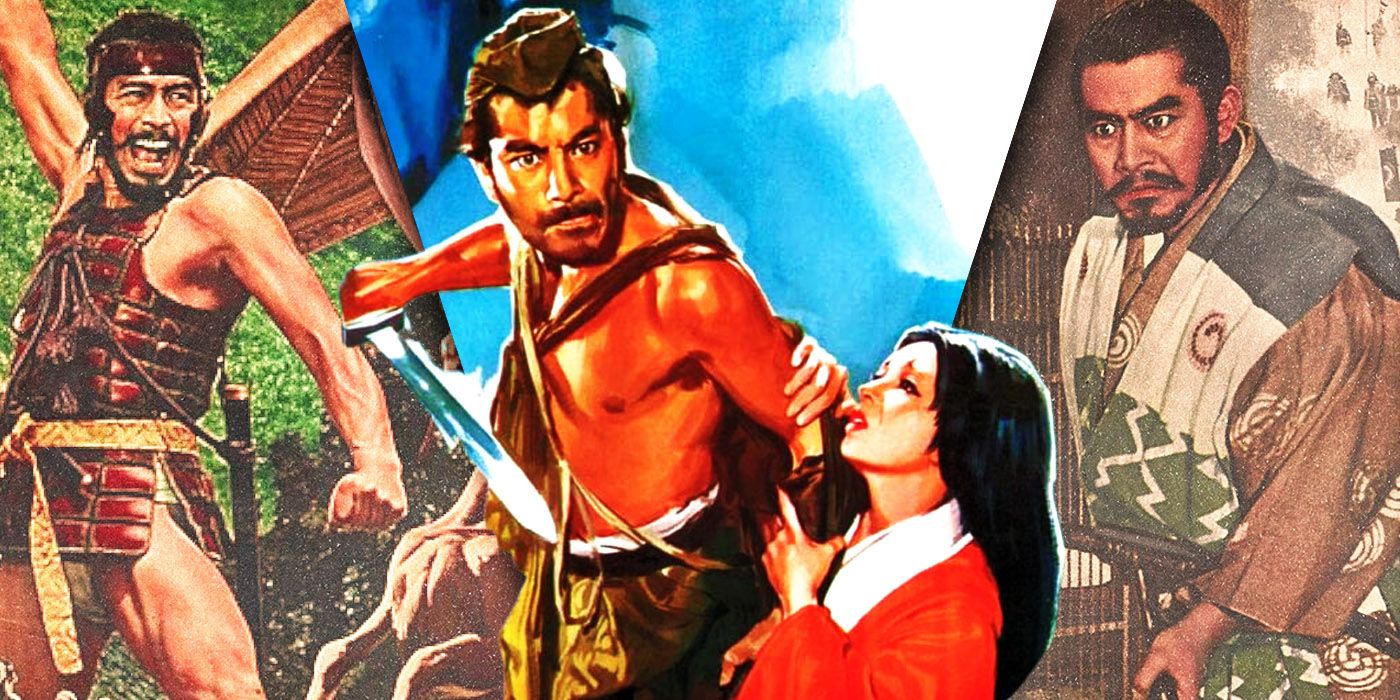
Related
The 10 Best Samurai Films of All Time, Ranked
The Samurai genre is one of Hollywood’s oldest and best, and movies like Seven Samurai and Yojimbo help to define the genre.
1 Drunken Master II Is the Best Kung Fu Movie of the 1990s (1994)
Lau Kar-leung’s Drunken Master II is the best kung fu movie of the 1990s. A sequel to Yuen Woo-ping’s 1978 classic kung fu film Drunken Master, Drunken Master II finds Jackie Chan reprising his role as Wong Fei-hung. This time around, Wong becomes caught in a battle between foreigners who wish to export ancient Chinese artifacts out of the country and loyalists who do not want to see the pieces leave China.
During Drunken Master II’s production, Lau and Chan frequently clashed, resulting in Lau eventually leaving the project. Chan took over directorial duties for the film’s climactic fight sequence. Despite the chaotic production, Drunken Master II went on to become a huge box office hit, finishing 1994 as the second highest-grossing domestic release in Hong Kong. At the Hong Kong Film Awards, Drunken Master II earned two nominations, winning for Best Action Choreography. Drunken Master II also won Best Action Choreography at the Golden Horse Film Festival. In 2005, Time named Drunken Master II one of the 100 best movies of all time. Time Out voted Drunken Master II the 25th greatest action movie ever made.
Discover more from reviewer4you.com
Subscribe to get the latest posts to your email.
